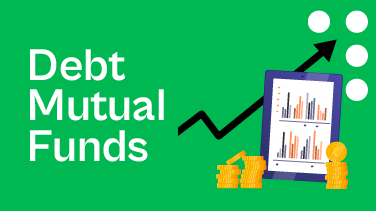Choosing a debt fund? Here is what you should know before investing this year

In an ever-evolving financial landscape, investors are constantly seeking opportunities to diversify their portfolios and achieve their financial goals. One such investment avenue is debt funds, which offer a relatively stable and low-risk option for those looking to park their money in fixed-income securities. But, with a wide variety of debt funds available in the market, selecting the right one can be a daunting task. Read on to navigate the world of debt funds, understand their nuances, and provide you with essential information to make an informed decision before investing your hard-earned money in 2023.
Interest rates are on the rise
The RBI has increased interest rates twice already in response to rising inflation. More rate hikes are expected during the year. When rates rise, the value of existing bonds declines. So if you invest in top debt mutual funds that hold long-term bonds now, your returns could be impacted. However, the good news is that debt funds investing in short-term bonds with maturities of 3-5 years can still benefit from rising rates. Their bond portfolios will adjust quickly to the new higher rates. So choose debt funds wisely based on their maturity profile.
Credit risk is important to consider
Debt funds that invest in government securities (G-secs) and high-quality corporate bonds (AAA rated) are considered the safest. they have minimal credit risk. However, they also offer lower returns. Debt funds that invest in medium-to-low quality corporate bonds offer higher returns but also higher credit risk. If interest rates rise, their bond values may fall more sharply. And some corporate bonds can default on payments, hurting your returns. So assess your risk appetite before choosing between different kinds of debt funds. For most retail investors, sticking to high quality funds is advisable.
Some sectors may outperform others
Certain sectors like housing finance companies, public sector undertakings and non-banking finance companies have outperformed. Debt funds investing in these sectors could earn higher returns. However, sector-focused funds also tend to be more volatile. It is best to choose funds that invest across sectors to balance risk and return. Also review the sectoral focus of funds relative to the overall market to make the optimal choice.
Shorter duration funds have lower volatility
Duration refers to a fund’s sensitivity to interest rate changes. The lower the duration, the less sensitive it is to rate changes. So debt funds with shorter duration – like ultra short duration funds and low duration funds – will have lower volatility. They are good options if you want stable returns and low risk. Long duration funds have higher volatility but can earn better returns if rates decline. Choose based on your risk preference and outlook on rate changes.
Review exit loads before investing
Exit load refers to the fees charged when you withdraw money from a fund. Different funds have different exit loads based on the holding period. It could be nil for short holding periods but up to 1% for longer periods. Consider exit loads when choosing a debt fund, based on how long you plan to stay invested. For example, if you may need to withdraw money in 6-12 months, choose a fund with lower exit load for short-term investors. This will minimize penalties if you need to withdraw early.
Conclusion
Do your due diligence before picking the top mutual funds in the debt category. Consider factors like interest rate outlook, credit risk, duration, sector exposure and exit loads based on your needs. By making an informed choice, you can earn optimal returns from your debt fund investments.
